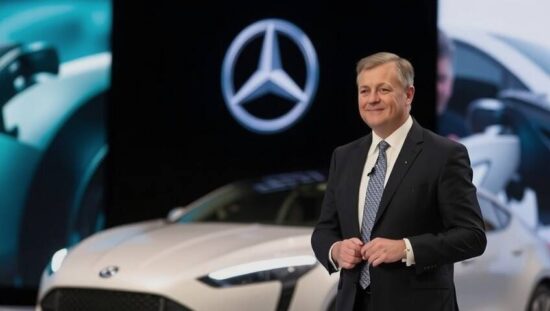Mercedes CEO Ola Källenius wants more purchase incentives for electric cars. “My wish is for it to be long-term and not so sudden” he told the “Süddeutsche Zeitung” (Friday edition). “If you go in and then come out again, like it happened in Germany, the customer will be uncertain.”
His company wants to actively shape the transition to electromobility, the Mercedes CEO explained. “We don’t question the decarbonization at all” he said. His company has invested “double-digit billion amounts” in e-mobility. Although the numbers are “not the ones we expected five years ago” Mercedes has “maintained the electric offensive and not delayed it.”
By the end of the current decade, they will cover all segments, “from the S-Class to the compact model” Källenius announces. “We want a successful path towards zero emissions” he said.
Källenius demands courage from the new federal government to make unpopular decisions. “In many dimensions, we are no longer at the forefront in terms of competitiveness” the Mercedes CEO said. For example, reforms are needed on the labor market. He referred to the costs of working hours, social security contributions, and taxes in the OECD comparison.
The Mercedes CEO also demands hurdles for sick leave. “Our plants are the same all over the world, there are the same health services, the same work environment. And yet, the sick leave rate in Germany is sometimes more than twice as high” Källenius said. This problem must be addressed politically. “It must not be so easy to take sick leave. Whoever misuses sick leave is behaving unsolidarily” the Mercedes CEO said.
Despite this, the local location still has great advantages. “We have creativity, we have an innovative spirit” Källenius said. “But if you skip training sessions and let other teams train on, you’ll lose the games eventually.”
When asked about the crisis in the auto industry and the drastic cost-cutting measures at rival VW, the Mercedes CEO said that his company must also reduce costs, even among the staff. However, he ruled out mass layoffs. “We’ve always worked with demographics, with fluctuation, and if we’ve made restructuring, it’s been with severance packages. We don’t come with the lawnmower and say we’re cutting minus X percent” Källenius said. “We turn every stone over and improve our structures.





